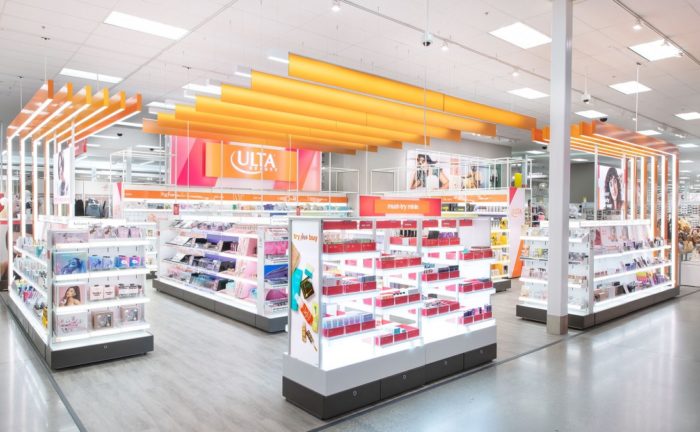
Ulta’s Target Growth Opportunity
This is a big month for Ulta, as the giant beauty retailer opens its first mini-shop in Target. This is just the first in what will be hundreds of locations.
In the Marketing Strategy course that I teach at Kellogg, I highlight that strategy is all about choices. Analysis is good, but ultimately it comes down to a choice. Often the decisions aren’t easy. Like this one.
Ulta’s decision to partner with Target has enormous potential, but there is risk, too; it could weaken the Ulta brand if the execution isn’t strong.
Ulta
Ulta is the largest beauty retailer in the United States. The firm had revenues of $7.4 billion in 2019, coming from 1,254 stores. Ulta has delivered remarkable growth, driven by store expansion and customer loyalty. In 2016 revenues were just $4.9 billion.
Profits were over $700 million in 2019; Ulta is not one of the all too common “growth without profit” stories. Sales declined in 2020, as you would expect with the pandemic, but still amounted to $6.2 billion.
The core of Ulta is the store experience. Ulta locations carry a vast selection: more than 25,000 products from 600 beauty brands. Customers can browse different options and get advice from well-trained, enthusiastic, and motivated employees. The stores offer beauty services, too.
Ulta has a remarkable focus on customers. The firm has a loyalty program with over 30 million members and taps into deep insights about how people view beauty products.
The Target Plan
Last year Ulta announced that it would be opening mini-stores in Target locations. The stores would gradually roll out, with the vision of eventually having Ulta locations in hundreds of Targets.
The Ulta stores would carry a small selection of products, just 50 brands. The stores would be staffed by specially trained Target employees. While Ulta and Target have not released details on the financials, it appears that Target will pay Ulta a percent of sales.
The Opportunity
It is easy to see why the Target deal is appealing for Ulta. First, it gives Ulta access to many more customers. More than 50% of people in the U.S. shop at Target. With mini-stores, Ulta can reach all of these people. Ideally, they will love the experience, sign-up for the Ulta loyalty program, visit an Ulta location and become loyal customers for life.
Second, the Target deal provides a growth opportunity for Ulta. At some point, Ulta’s existing strategy of adding locations will lose steam; this is almost inevitable as Ulta opens in all the top locations. With Target, Ulta gets a new and incremental revenue stream.
Third, the move could be considered a defensive play because it blocks competitors. Target may well have determined that it needed a strong play in beauty. If so, Ulta was in a difficult position, not wanting to leave the opportunity to a competitor like Sephora, or encourage Target to launch its own brand.
The Risk
Still, the move isn’t without risk. The biggest issue is the Ulta brand. Ulta is defined by a remarkable store experience: vast selection, motivated Ulta employees, beauty services. The mini-stores won’t provide any of this. These stores will certainly impact the Ulta brand. The only question is how much.
There is also a cannibalization risk. Will Ulta customers still visit an Ulta location if they can get some of the products at Target? Will purchases at Target be incremental or cannibalized? Ulta is almost certainly making less on purchases at the Target stores than at the Ulta stores. This will be something to watch.
And then there is a risk about brand partnerships. Ulta works with hundreds of beauty brands. How will these brands view the Target stores? Some brands might worry that being in Target will damage their brand perceptions. Other brands might be concerned that they aren’t in the Target selection.
The Outlook
How will this go? I suspect there will be significant upside in the short-run, as incremental sales kick in and Ulta acquires new customers.
The long-run impact is less clear. Ultimately, results will depend on how well the mini-stores deliver the brand experience.
Will be interesting to see if Ulta keeps its premium product offerings in its own stores and sell medium to value brands at the target locations. Could be a way acquire customers, move traffic into the ulta stores through their loyalty program.